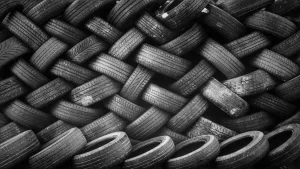Rubber Industry Steam Boilers for Your Rubber Manufacturing:
Rubber industry is an important industry in terms of economy of any country. Rubber industry provides essential household and medical rubber products.
Rubber Products are used in the following industries:
- Household
- Medical
- Mining
- Transportation ( Tyre)
- Construction
- Machinery
- Electronics
Use of Steam Boilers in Rubber Industry
vulcanization Industry
Vulcanization is a chemical process that is used to improve the strength, elasticity, and durability of rubber. The process involves heating rubber with sulfur or another vulcanizing agent, which creates cross-links between the polymer chains. This results in a more stable and resilient material that is better able to withstand wear and tear.
The vulcanization industry is highly competitive, with a number of major players, including Lanxess, Momentive Performance Materials, and The Chemours Company. These companies offer a wide range of vulcanization products and services, including accelerators, sulfur, and curing agents.
The rubber vulcanization industry is expected to continue to grow in the coming years, driven by the increasing demand for rubber-based products in a variety of industries. This growth will create opportunities for new entrants to the market, as well as for existing players to expand their product offerings and services.

In the case of rubber, curing is known as vulcanization. For Vulcanization Steam Boilers are being used in rubber industry.
As we know tires are the most important part of our vehicle because in all the parts of vehicle tires only remain in contact with the earth hence tires carry all the load of vehicle and passengers.
For providing proper strength, hardness to tires vulcanization process in done
Vulcanization is a process in which natural rubber is heated with sulfur for providing durability and required mechanical properties. This material obtained by vulcanization is less sticky.
In vulcanization firstly mixing of natural rubber with sulfur and other additives such as the activator, softners, accelerators, color pigments, and foaming agents etc is done. In this stage, slow cross-linking starts but if the vulcanization will start during mixing then cracks will occur so it should be remembered that vulcanization would not start during mixing.
Before heating, it is necessary to shape the rubber. After shaping, the mixture is heated by taking heat from steam about 200 degrees Celsius, this heating increase the vulcanization rate. For producing steam which is required for vulcanization boiler is used.
In steam vulcanization, direct contact type of heating occurs, steam comes in direct contact of rubber. Hence the steam is used for vulcanization need to be treated if it is used in the cycle because due to direct contact steam gets impure. Steam has a high vulcanization capacity. In steam vulcanization saturated steam is used at the pressure about 18-24bar.
These are some product where the vulcanized rubber is used such as
- Hockey pucks
- Suction cups
- Rubber Seals
- Rubber rings
- Motor mounts and many more
Type of Steam Boiler for Rubber Industry
For the rubber industry we have types of steam boilers:
Type: 1- Boiler in Rubber Industry
Reasons to Use
- Energy Saving
- Natural Gas Fired, Diesel Oil, Light Oil, LPG Fired
- High Combustion Efficiency ( 92%)
- Less NOx Emission ( 35mg/m3)
Type: 2 Boiler in Rubber Industry
- Coal or Biomass Fired Boiler
Reasons to Use
- Enhanced Sealing of Boiler
- More Heating Surface of Furnace
- Enhanced Intensity of Back Arch
Steam boiler for sale for Rubber Industry
Thermodyne makes boilers such as internal furnace boiler, combi boiler which is a combination of fire tube and water tube. Coil type boiler, waste heat recovery boiler etc. Our combi boiler is a most demanded boiler in the rubber industry.
Also Read: What is the Combi Boiler
Get An Instant Quotation
Steam Boiler for Your Rubber Industries Manufacturing FAQ
A steam boiler is a device that produces steam by heating water. Steam is used in a variety of industries, including rubber manufacturing.
Steam boilers offer a number of benefits for rubber manufacturing plants, including:
Increased production capacity: Steam can be used to power a variety of machines in a rubber manufacturing plant, which can lead to increased production capacity.
Improved quality: Steam can be used to heat rubber to the desired temperature, which can lead to improved quality of the final product.
Reduced energy costs: Steam boilers are more efficient than other heating methods, such as gas or electric heating, which can lead to reduced energy costs.
There are two main types of steam boilers: fire-tube boilers and water-tube boilers.
Fire-tube boilers: In a fire-tube boiler, water is heated by fire that passes through tubes inside the boiler.
Water-tube boilers: In a water-tube boiler, water is heated by fire that passes around tubes filled with water.
The following factors should be considered when choosing a steam boiler for a rubber manufacturing plant:
The size of the plant: The size of the plant will determine the size of the boiler needed.
The type of rubber being manufactured: The type of rubber being manufactured will determine the temperature and pressure required for the boiler.
The availability of fuel: The type of fuel available will determine the type of boiler that can be used.
The cost of the boiler: The cost of the boiler is an important factor to consider, but it should not be the only factor.
The installation of a steam boiler in a rubber manufacturing plant should be done by a qualified professional. The installation process will vary depending on the type of boiler being installed.
The operation and maintenance of a steam boiler in a rubber manufacturing plant should be done by a qualified professional. The operation and maintenance procedures will vary depending on the type of boiler being used.
Steam boilers can pose a number of safety hazards, including:
Fire: Steam boilers can overheat and cause fires.
Explosion: Steam boilers can explode if they are not properly maintained.
Burns: Steam can cause serious burns.
Scalding: Hot water can cause scalding.
Accidents and injuries involving steam boilers can be prevented by following safety procedures, such as:
Always wear proper safety gear when working around steam boilers.
Never overload a steam boiler.
Always inspect the steam boiler before use for any signs of damage.
Never operate a steam boiler that is damaged.
Always have a fire extinguisher on hand in case of a fire.
More information about steam boilers for rubber industries manufacturing can be obtained from the following sources:
Indian Boiler Manufacturers Association (IBR): The IBR s a trade association that represents the steam boiler industry
The National Fire Protection Association (NFPA): The NFPA is a non-profit organization that develops fire safety standards.
The Occupational Safety and Health Administration (OSHA): OSHA is a federal agency that sets workplace safety standards.
The future trends for steam boilers in rubber industries manufacturing include:
The use of more efficient boilers.
The use of boilers that are more environmentally friendly.
The development of new technologies that will make steam boilers safer and easier to operate.







